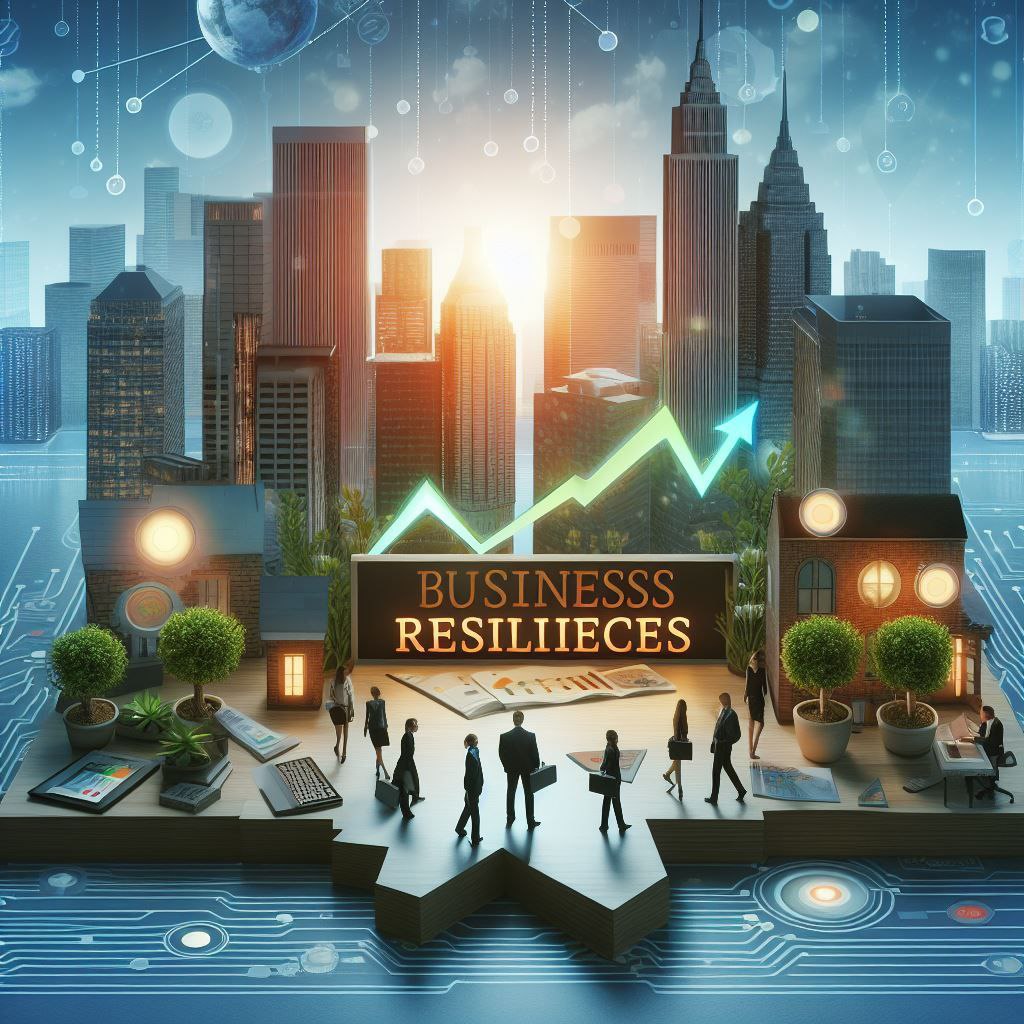In an era marked by unprecedented global challenges, the ability of businesses to adapt, withstand shocks, and recover swiftly has become a defining factor for success. World business resilience strategies have taken center stage as organizations navigate a landscape characterized by the ongoing effects of the global pandemic, geopolitical uncertainties, climate change, and other disruptive forces. Here are key strategies that businesses worldwide are adopting to enhance their resilience on a global scale.
- Diversification of Supply Chains: Businesses are reevaluating and diversifying their supply chains to mitigate risks associated with disruptions. Overreliance on specific regions or suppliers has proven to be a vulnerability during crises. By diversifying sources and establishing local and regional partnerships, companies enhance their ability to adapt to unforeseen challenges and maintain business continuity.
- Digital Transformation and Agility: Rapid digital transformation is at the core of building business resilience. Companies are embracing advanced technologies to enhance agility, streamline operations, and enable remote work capabilities. Cloud computing, artificial intelligence, and data analytics play pivotal roles in creating flexible and adaptive business models that can swiftly respond to changing circumstances.
- Scenario Planning and Risk Assessment: Forward-thinking businesses engage in comprehensive scenario planning and risk assessments to identify potential vulnerabilities. By understanding various possible futures and their associated risks, companies can develop proactive strategies to minimize the impact of unforeseen events. This includes evaluating economic, geopolitical, and public health scenarios.
- Investment in Employee Well-being: Recognizing the critical role employees play in organizational resilience, businesses are investing in employee well-being initiatives. Providing mental health support, flexible work arrangements, and professional development opportunities not only fosters a positive work environment but also ensures that organizations have a motivated and resilient workforce during times of crisis.
- Adaptive Business Models: Static business models are giving way to adaptive ones that can pivot swiftly in response to external shocks. Companies are adopting a more fluid and innovative approach to their business structures, allowing for rapid adjustments to market conditions. This adaptability enables organizations to identify new opportunities and navigate challenges with greater ease.
- Strengthening Cybersecurity Measures: With the increasing digitization of business operations, cybersecurity has become a paramount concern for resilience. Companies are investing in robust cybersecurity measures to protect their data, infrastructure, and customer information. Regular audits, employee training, and staying ahead of evolving cyber threats are integral components of a comprehensive cybersecurity strategy.
- Collaborative Industry Partnerships: Building collaborative partnerships within industries and across sectors enhances the collective resilience of businesses. Sharing best practices, resources, and information during crises fosters a sense of unity and enables organizations to support one another. Collaborative efforts also extend to joint research and development initiatives that drive innovation and adaptability.
- Supply Chain Transparency: Transparent supply chains are a cornerstone of resilient business strategies. Companies are leveraging technology, such as blockchain, to enhance transparency and traceability across the supply chain. This not only mitigates risks associated with disruptions but also meets the growing consumer demand for ethically sourced and environmentally sustainable products.
- Financial Prudence and Risk Management: Businesses are adopting conservative financial practices and robust risk management strategies to fortify their financial positions. Maintaining adequate liquidity, diversifying investments, and conducting stress testing are measures taken to ensure financial resilience in the face of economic uncertainties and market fluctuations.
- Climate Resilience Planning: Climate change poses long-term risks to businesses, and organizations are incorporating climate resilience into their strategies. This includes assessing vulnerabilities related to changing weather patterns, extreme events, and regulatory shifts. Sustainable practices and green initiatives are not only essential for environmental responsibility but also contribute to long-term business resilience.
In conclusion, world business resilience strategies are dynamic and multifaceted responses to the complexities and uncertainties of the global landscape. Businesses that proactively embrace these strategies position themselves not only to weather storms but also to thrive in the face of adversity. As the world continues to evolve, the ability of businesses to adapt, innovate, and collaborate will be instrumental in shaping a more resilient and sustainable future for the global economy.



